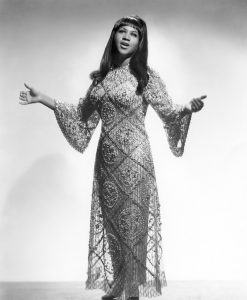Amanda Petrusich in The New Yorker:
 The eternal challenge is to answer grief with something that resembles love. To choose not just to sit around decrying hardship and injustice but instead to uncurl your fists and approach sorrow with grace, power, and, most incredibly, gratitude—not for the hurt itself but for the whole miraculous mess of being alive, this strange endowment of breath and blood. Most days, I believe that Aretha Franklin did this work better than anyone. And she did it while being tough and self-assured, confident in both her capacity and her worth, thus obliterating the terrible, pervasive presumption that a woman can’t be tender and oh-my-goodness mighty at the same time.
The eternal challenge is to answer grief with something that resembles love. To choose not just to sit around decrying hardship and injustice but instead to uncurl your fists and approach sorrow with grace, power, and, most incredibly, gratitude—not for the hurt itself but for the whole miraculous mess of being alive, this strange endowment of breath and blood. Most days, I believe that Aretha Franklin did this work better than anyone. And she did it while being tough and self-assured, confident in both her capacity and her worth, thus obliterating the terrible, pervasive presumption that a woman can’t be tender and oh-my-goodness mighty at the same time.
Franklin, who died Thursday, at seventy-six—a family statement cited pancreatic cancer as the cause—was born on March 25, 1942, in Memphis, Tennessee. She had four children. Her father, C. L. Franklin, was a Mississippi-born Baptist minister of deep and wide renown, and her mother, Barbara, sang and played piano in the church. When Aretha was still a child, her father gave up itinerant preaching to settle at the New Bethel Baptist Church, in Detroit, Michigan. (Not long after, Barbara and C. L. separated; Barbara died in Buffalo, New York, in 1952, when she was thirty-four and Aretha was just ten.) At first, C. L.’s congregation had four hundred members and met in a bowling alley. In 1963, the church was thriving and moved into the once-crumbling Oriole Theatre, which C. L. arranged to have renovated by black workers and artisans, a transition he described, in the Detroit Free Press, as “a trip from the valley to the mountain”; two thousand parishioners gathered to celebrate. C. L.’s friends and acolytes included Martin Luther King, Jr., and the gospel singers Mahalia Jackson and Clara Ward. You can imagine the sort of child that crowd might nurture. The music of the black church—where Aretha was born and inculcated, where her voice both originated and returned—was the most trenchant force in her life.
More here.
